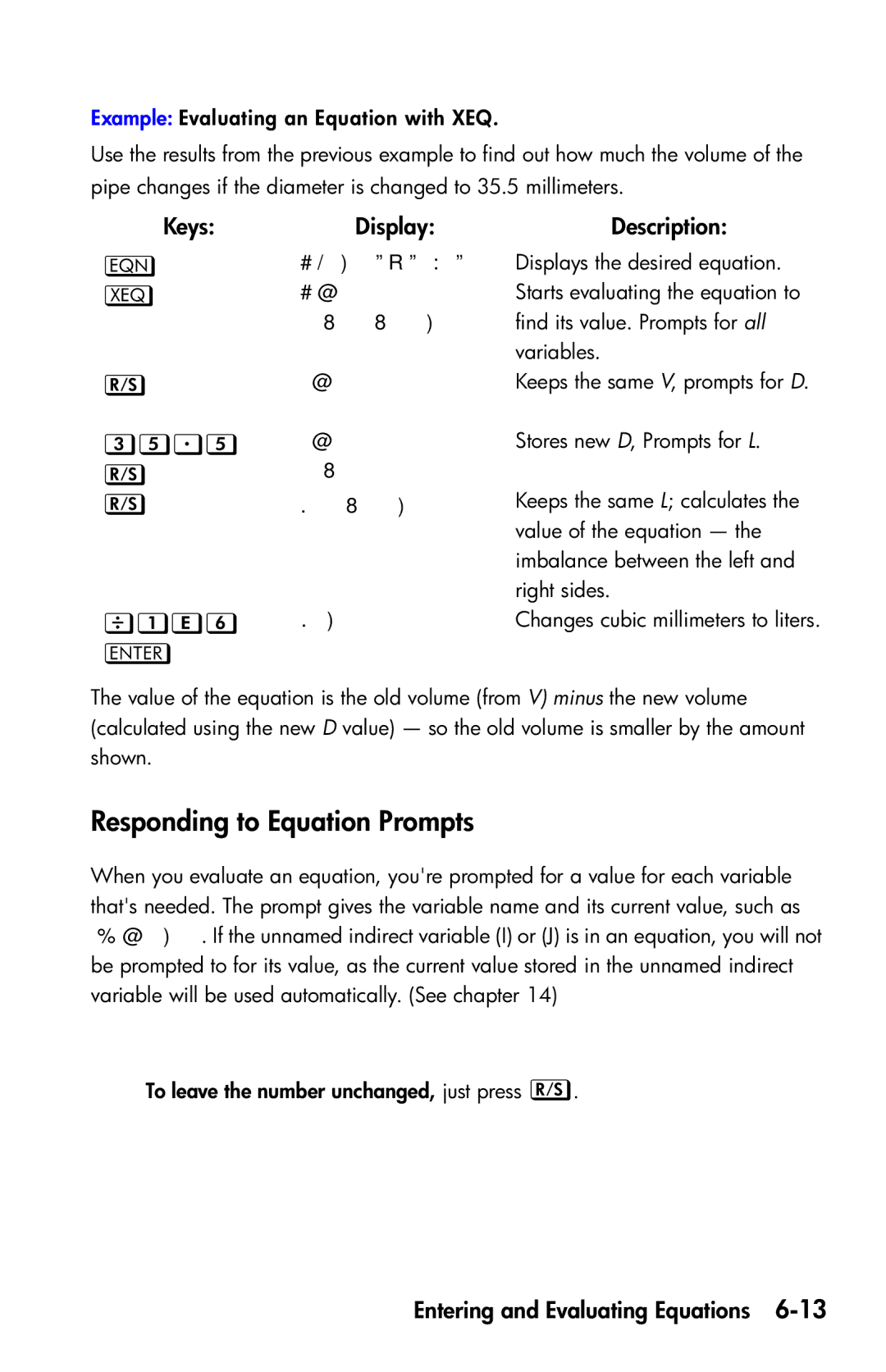Example: Evaluating an Equation with XEQ.
Use the results from the previous example to find out how much the volume of the pipe changes if the diameter is changed to 35.5 millimeters.
Keys:Display:Description:
Displays the desired equation.
| | Starts evaluating the equation to |
| | find its value. Prompts for all |
|
| variables. |
| | Keeps the same V, prompts for D. |
| |
|
| | Stores new D, Prompts for L. |
| | Keeps the same L; calculates the |
|
| value of the equation — the |
|
| imbalance between the left and |
|
| right sides. |
| | Changes cubic millimeters to liters. |
|
|
|
The value of the equation is the old volume (from V) minus the new volume (calculated using the new D value) — so the old volume is smaller by the amount shown.
Responding to Equation Prompts
When you evaluate an equation, you're prompted for a value for each variable that's needed. The prompt gives the variable name and its current value, such as . If the unnamed indirect variable (I) or (J) is in an equation, you will not be prompted to for its value, as the current value stored in the unnamed indirect variable will be used automatically. (See chapter 14)
To leave the number unchanged, just press .
